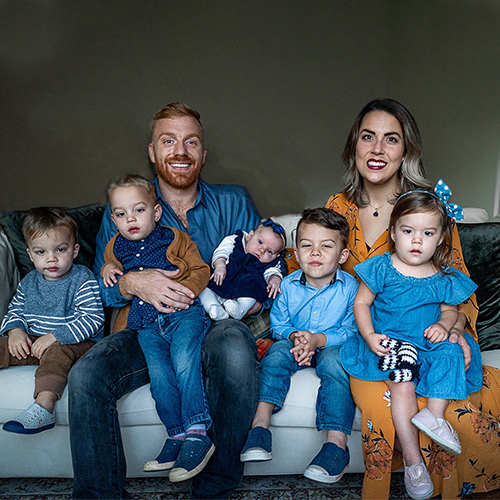Preschoolers 4-5 Years
Family values: what they are and why they matter?

In a of couple weeks, my best friend’s daughter will graduate high school. In the fall, this fresh-faced, eighteen-year-old girl plans to attend university in America—a world away from her home in the Middle East.
And as I’ve watched all the anticipated change taking shape for these dear friends, it’s had me thinking. About family, about kids, about how quickly time passes.
My oldest is five and a half. We are just starting KG2 this fall—meaning, we have a long way to go before we hit college age.
And yet, kids don’t just wake up one day ready to leave home.
The preparing of a child to enter the world—as a young adult capable of grappling with whatever life throws at him or her—starts at an early age.
It begins with the most fundamental lessons. About how to treat other people: “Apples are for eating; they are not for throwing at your brother’s head.”
About personal responsibility: “When you finish cleaning up all your blocks, then you can watch your show.”
About how to be adaptable when life doesn’t go your way: “I see you are upset because you want to play with the train. But sister has it now. Ask her if you can have a turn in one minute, or in two minutes.”
There are many more examples of the lessons we are teaching our kids from the beginning that translate into a young adult’s readiness to branch out and start becoming their own person.
So, I’ve been asking myself big questions like:
What is it I want my children to have when they leave my home?
What type of human do I want them to be when they step out into the world on their own?
A year or so ago, my husband and I sat down and had a long talk about, what we refer to as, family values.
These are the characteristics and understandings we want to equip our children with while they are still in our home. They are the traits we hope our family will be known for.
Obviously, we cannot force our children to be anyone they won’t agree to be. We learn that from the time they transition to toddlerhood, pushing our buttons and challenging our simplest instructions.
Kids long to be free and make their own choices. This is human nature.
So, we do the best we can. We model the behavior we hope to see growing in them. We have rich discussions in the moments our children desire connection and conversation.
We choose a parenting style and discipline techniques that align with the values we hope to embed, continually pointing back to who we are as a family.
Family values are clarifying and helpful for all parties involved.
First, they help us as parents. They remind us of what is really important. They keep us from feeling pressured to act like other families with different values. We define what our family is about, and we put our concentration on painting those values into the big picture of our lives.
Second, family values help our children. They define what we believe to be the most important truths about life, family, and how we conduct ourselves in the world. Known values make it easier for kids to weigh their words and actions—to hold their choices and behavior up to the blueprint of how our family hopes to treat ourselves and others.
Kids thrive in structure and routine. This isn’t just true for daily responsibilities and activities. This is also true on an emotional and internal level.
If kids have a clear idea of where their behavior and choices should be headed, it is easier for them to aim their words and actions in a specific direction.
But how do you actually decide what your family values should be?
First, talk with your spouse about the family values that guided your upbringings. For me, “hard working” and “integrity” come to mind. For my husband, “kindness.” There’s no wrong or right answer. This will help you start to identify what you hold as important, and why.
Second, there are approximately one million great lessons and values I’d like to instill in my children before they leave home. But an eternally long list does not help anyone. We can’t focus and give attention to a million things. You need a list of three to ten items you can clearly articulate and identify.
Start by making an overly-long list of the top twenty things you think are super important for your kids to master before adulthood.
Not the piano or math or another language. We’re talking values. Behaviors. How they treat others. If there’s a theme that appears (like “empathy,” “compassion,” “kindness,”), see if you can group all of them under one word.
Once you’ve narrowed down your top values, write or print them out in big letters and hang them somewhere visible in your home. Our family values hang on our kitchen pantry door. We see them all throughout the day.
In the rest of this series, I’ll share our family values and explain how we decided on each one.
A final thought—having family values is not an attempt at creating perfect children. Or children who perform to gain love or acceptance.
The goal of family values is to unite together in a meaningful, shared experience—to have a purpose that we work towards as a family. It should take pressure off of us, not add to it.
And the hope is that these values act as a guide as we all learn to love and care for each other more fully.













